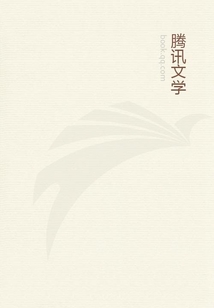
Revolution and Counter-Revolution
最新章節(jié)
- 第53章 XX. THE LATE TRIAL AT COLOGNE.(3)
- 第52章 XX. THE LATE TRIAL AT COLOGNE.(2)
- 第51章 XX. THE LATE TRIAL AT COLOGNE.(1)
- 第50章 XIX. THE CLOSE OF THE INSURRECTION.(3)
- 第49章 XIX. THE CLOSE OF THE INSURRECTION.(2)
- 第48章 XIX. THE CLOSE OF THE INSURRECTION.(1)
第1章 NOTE BY THE EDITOR(1)
THE following articles are now, after forty-five years, for the first time collected and printed in book form. They are an invaluable pendant to Marx's work on the coup d'etat of Napoleon III. ("Der Achtzehnte Brumaire des Louis Bonaparte.") Both works belong to the same period, and both are what Engels calls "excellent specimens of that marvellous gift...of Marx... of apprehending clearly the character, the significance, and the necessary consequences of great historical events at a time when these events are actually in course of taking place, or are only just completed."
These articles were written in 1851-1852, when Marx had been about eighteen months in England. He was living with his wife, three young children, and their life-long friend, Helene Demuth, in two rooms in Dean Street, Soho, almost opposite the Royalty Theatre. For nearly ten years they had been driven from pillar to post. When, in 1843, the Prussian Government suppressed the Rhenish Gazette which Marx had edited, he went with his newly-married wife, Jenny von Westphalen, to Paris. Not long after, his expulsion was demanded by the Prussian Government--it is said that Alexander von Humboldt acted as the agent of Prussia on this occasion--and M. Guizot was, of course, too polite to refuse the request. Marx was expelled, and betook himself to Brussels. Again the Prussian Government requested his expulsion, and where the French Government had complied it was not likely the Belgian would refuse. Marx received marching orders.
But at this same time the French Government that had expelled Marx had gone the way of French Governments, and the new Provisional Government through Ferdinand Flocon invited the "brave et loyal Marx" to return to the country whence "tyranny had banished him, and where he, like all fighting in the sacred cause, the cause of the fraternity of all peoples," would be welcome. The invitation was accepted, and for some months he lived in Paris. Then he returned to Germany in order to start the New Rhenish Gazette in Cologne. And the Rhenish Gazette writers had very lively times. Marx was twice prosecuted, but as the juries would not convict, the Prussian Government took the nearer way and suppressed the paper.
Again Marx and his family returned to the country whose "doors" had only a few short months before been "thrown open" to him. The sky had changed--and the Government. "We remained in Paris," my mother says in some biographical notes I have found, "a month. Here also there was to be no resting-place for us. One fine morning the familiar figure of the sergeant of police appeared with the announcement that Karl 'et sa dame' must leave Paris within twenty-four hours. We were graciously told we might be interned at Vannes in the Morbihan. Of course we could not accept such an exile as that, and I again gathered together my small belongings to seek a safe haven in London. Karl had hastened thither before us." The "us" were my mother, Helene Demuth, and the three little children, Jenny (Madame Longuet), Laura (Madame Lafargue), and Edgar, who died at the age of eight.
The haven was safe indeed. But it was storm-tossed. Hundreds of refugees--all more or less destitute--were now in London. There followed years of horrible poverty, of bitter suffering--such suffering as can only be known to the penniless stranger in a strange land. The misery would have been unendurable but for the faith that was in these men and women, and hut for their invincible "Humor." I use the German word because I know no English one that quite expresses the same thing--such a combination of humor and good-humor, of light-hearted courage, and high spirits.
That readers of these articles may have some idea of the conditions under which Marx was working, under which he wrote them and the "Achtzehnte Brumaire," and was preparing his first great economical work, "Zur Kritik der Politischen Oeconomie" (published in 1859), I again quote from my mother's notes. Soon after the arrival of the family a second son was born. He died when about two years old. Then a fifth child, a little girl, was born.
When about a year old, she too fell sick and died. "Three days,"writes my mother, "the poor child wrestled with death. She suffered so...Her little dead body lay in the small back room; we all of us" (i. e., my parents, Helene Demuth, and the three elder children) "went into the front room, and when night came we made us beds on the floor, the three living children lying by us. And we wept for the little angel resting near us, cold and dead. The death of the dear child came in the time of our bitterest poverty.

